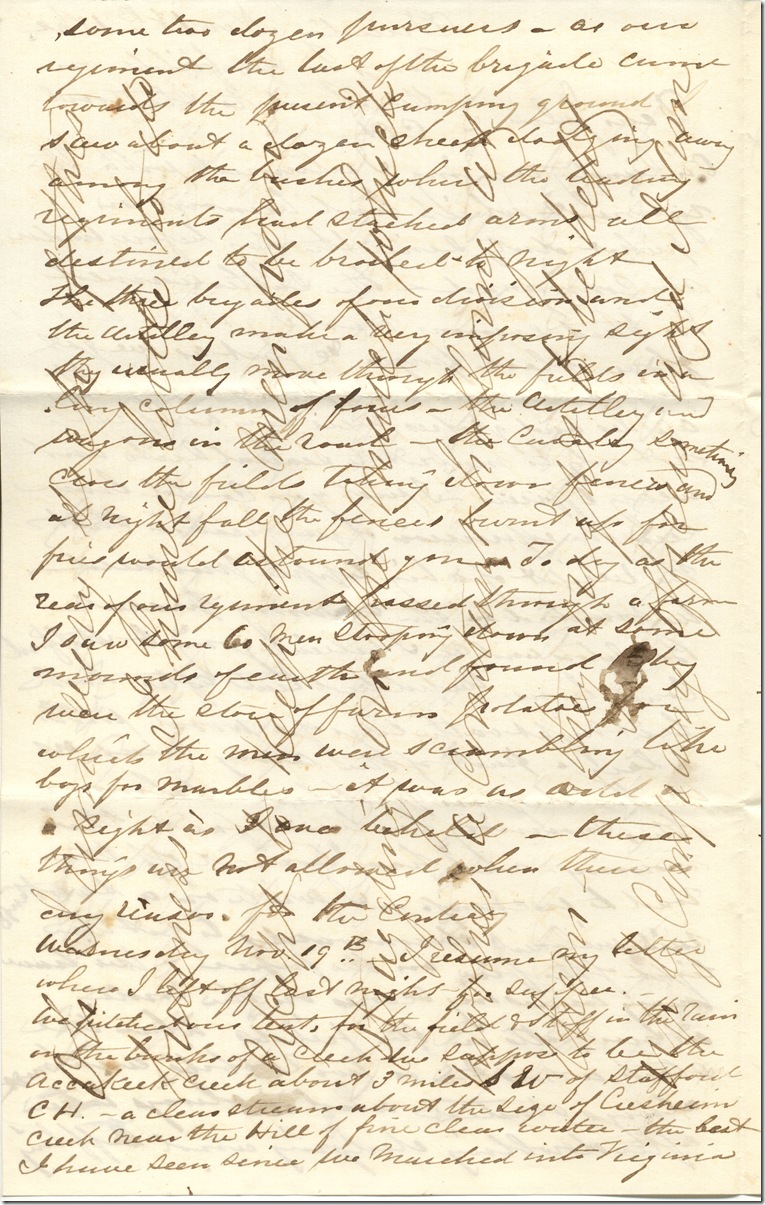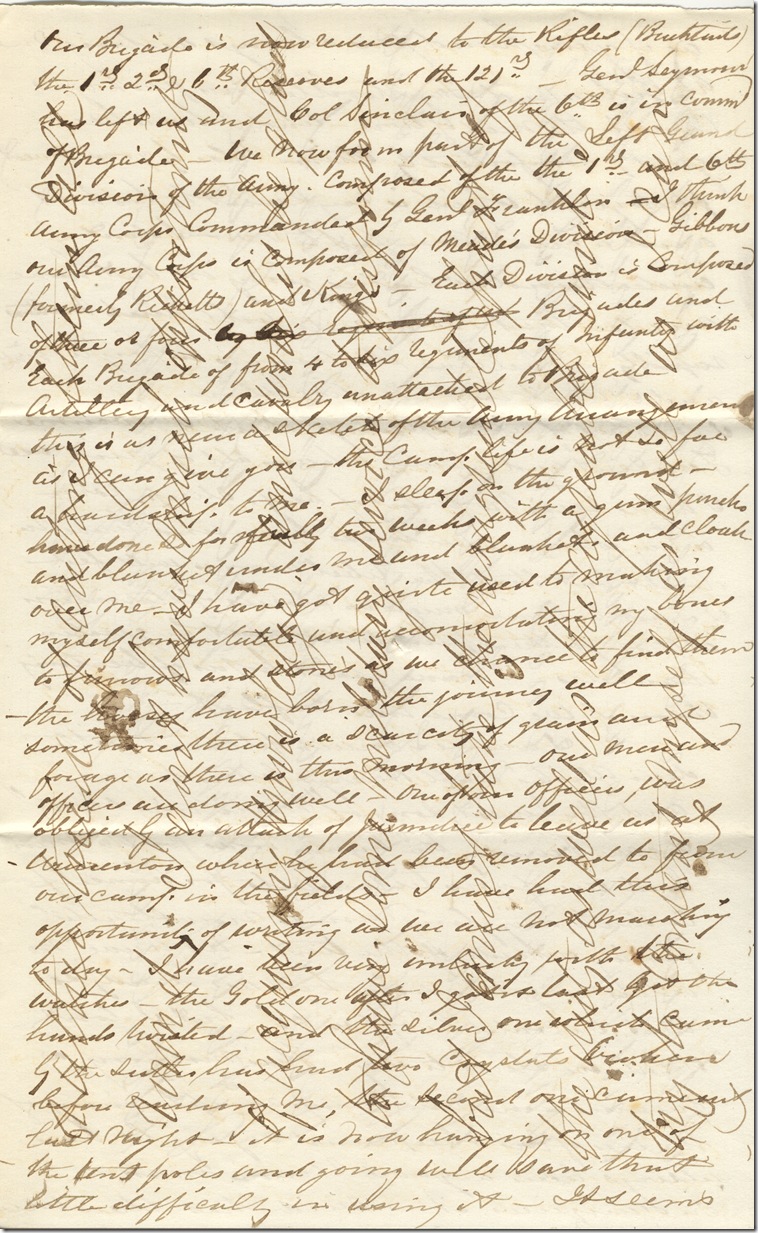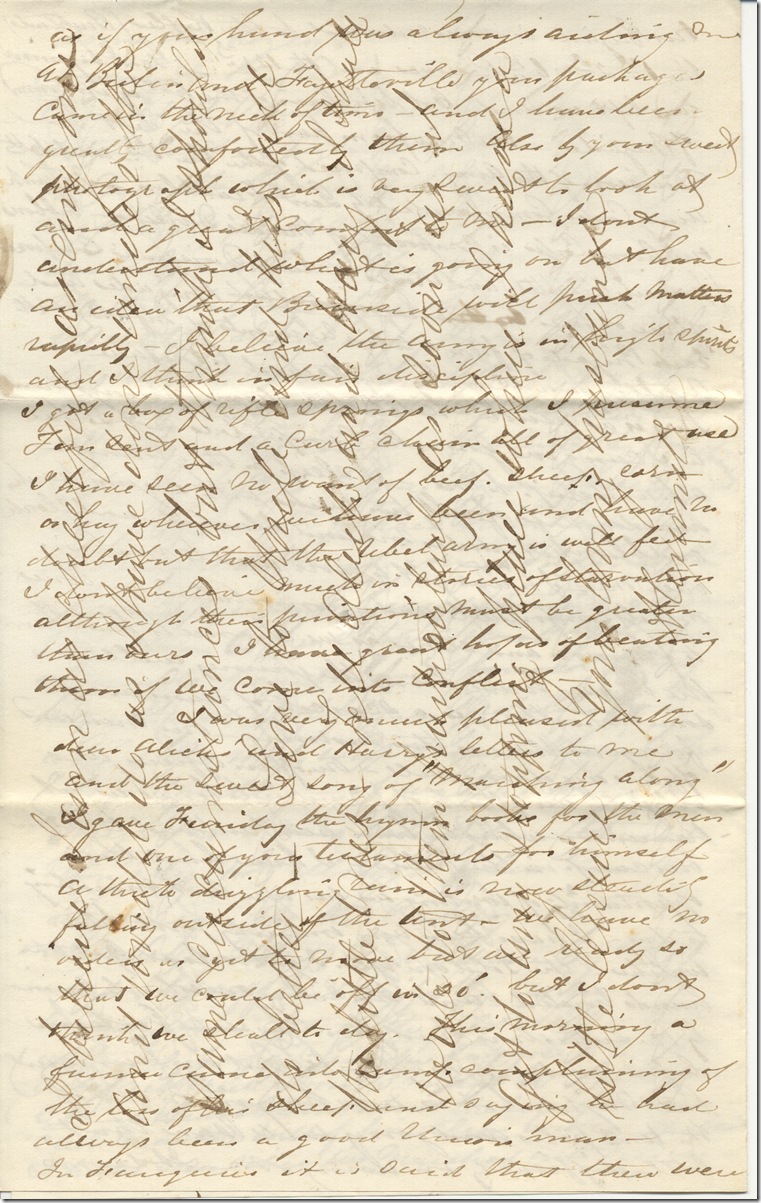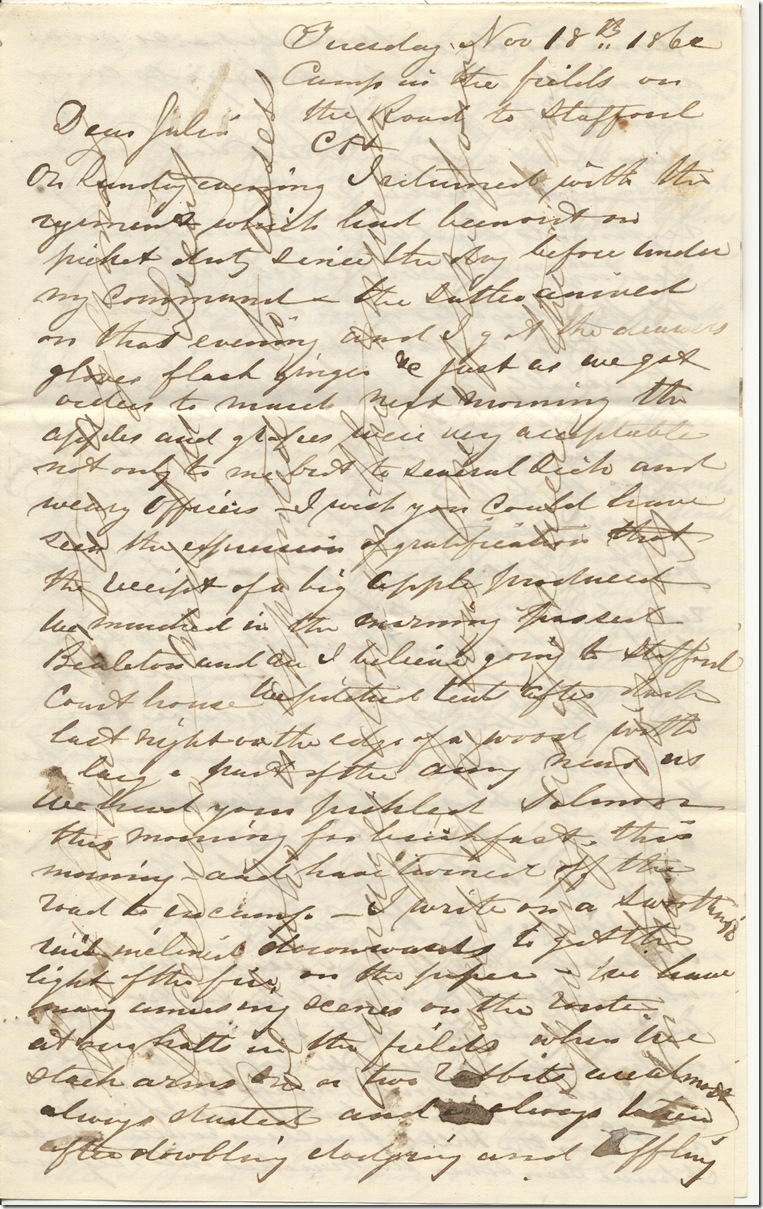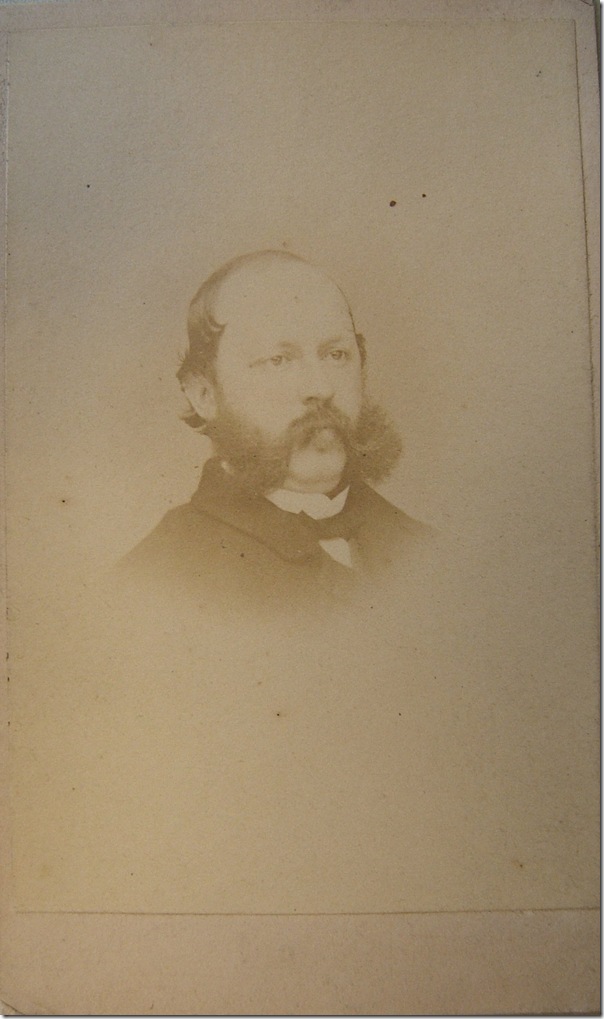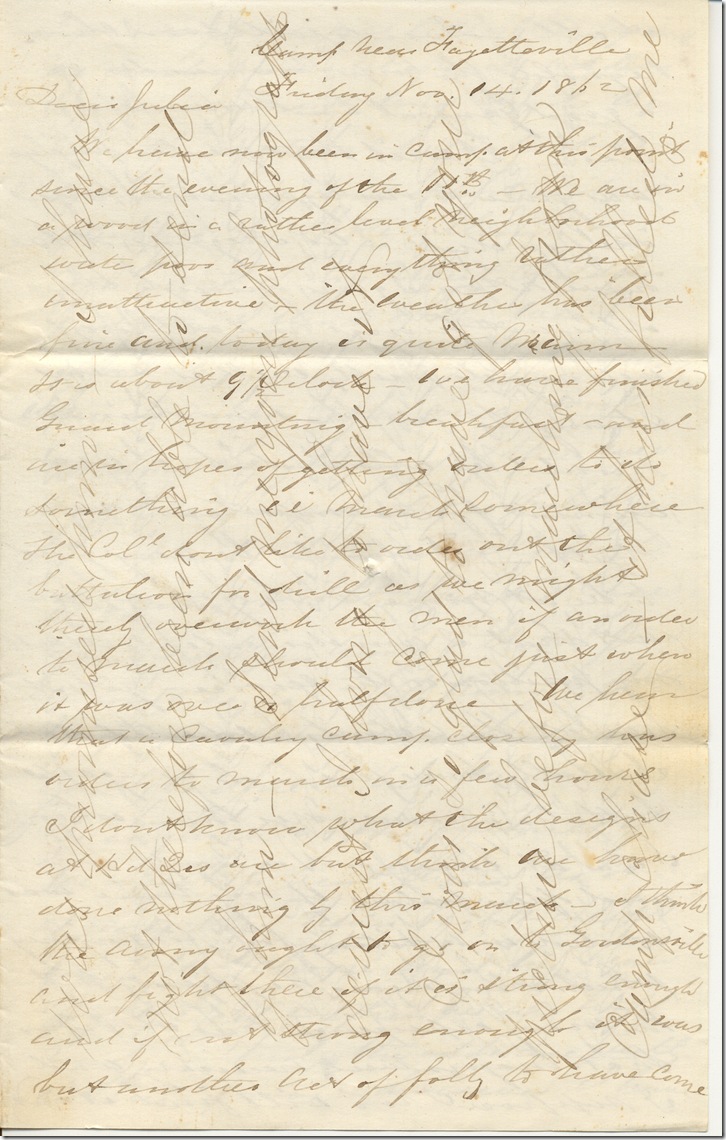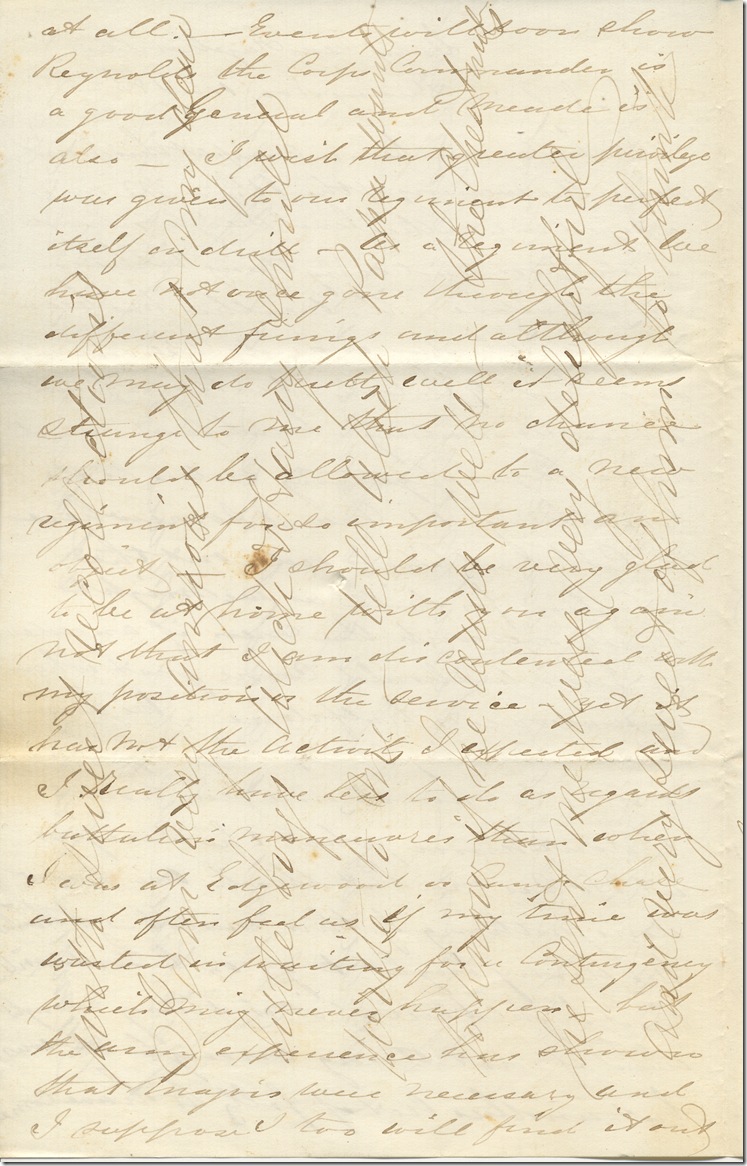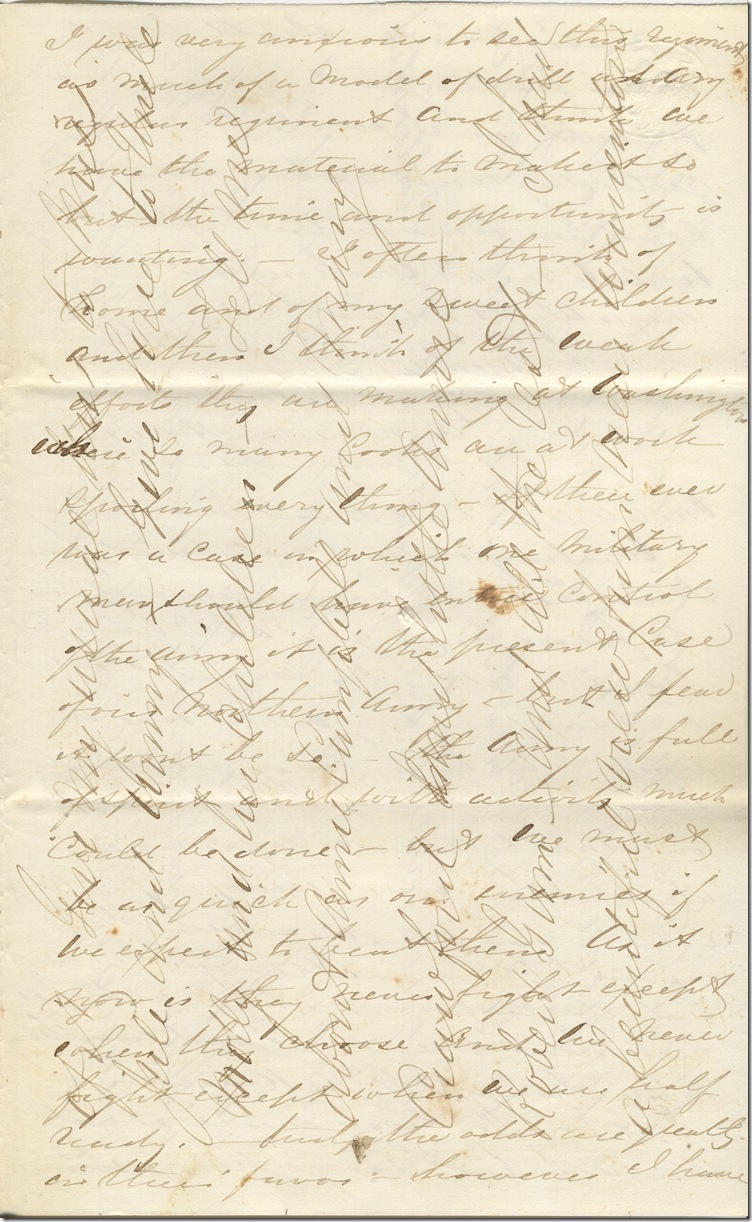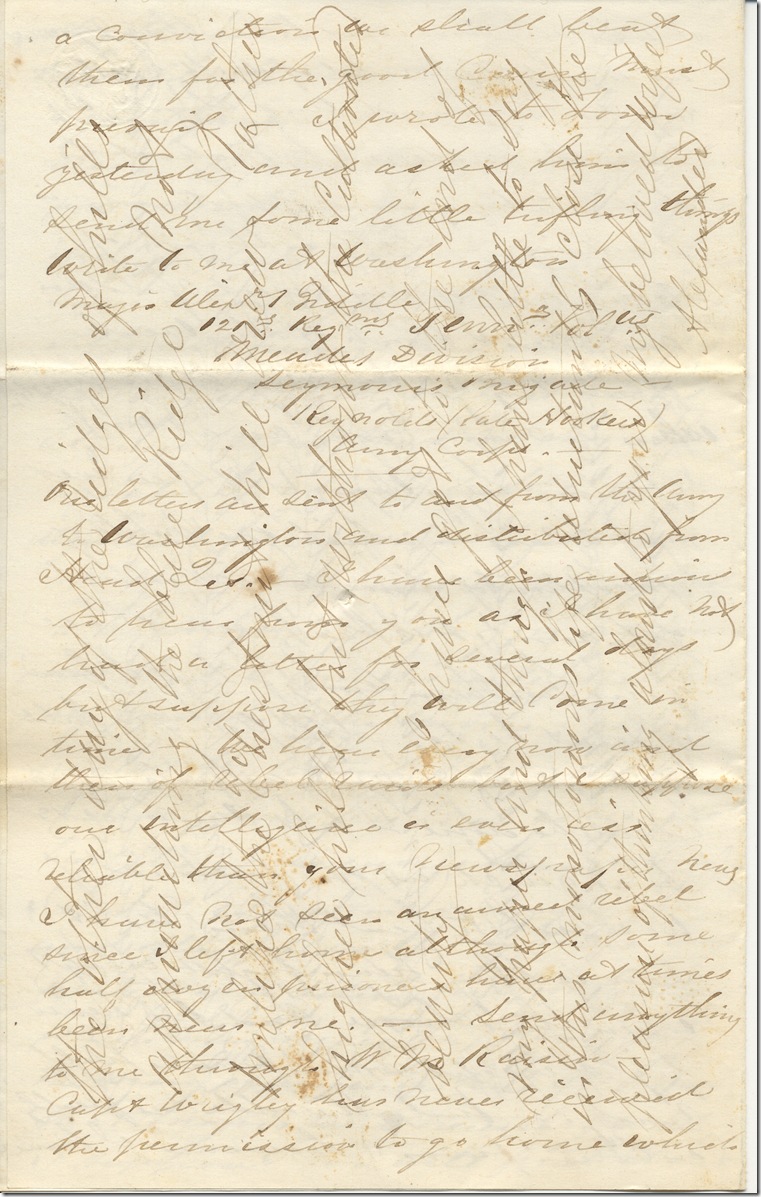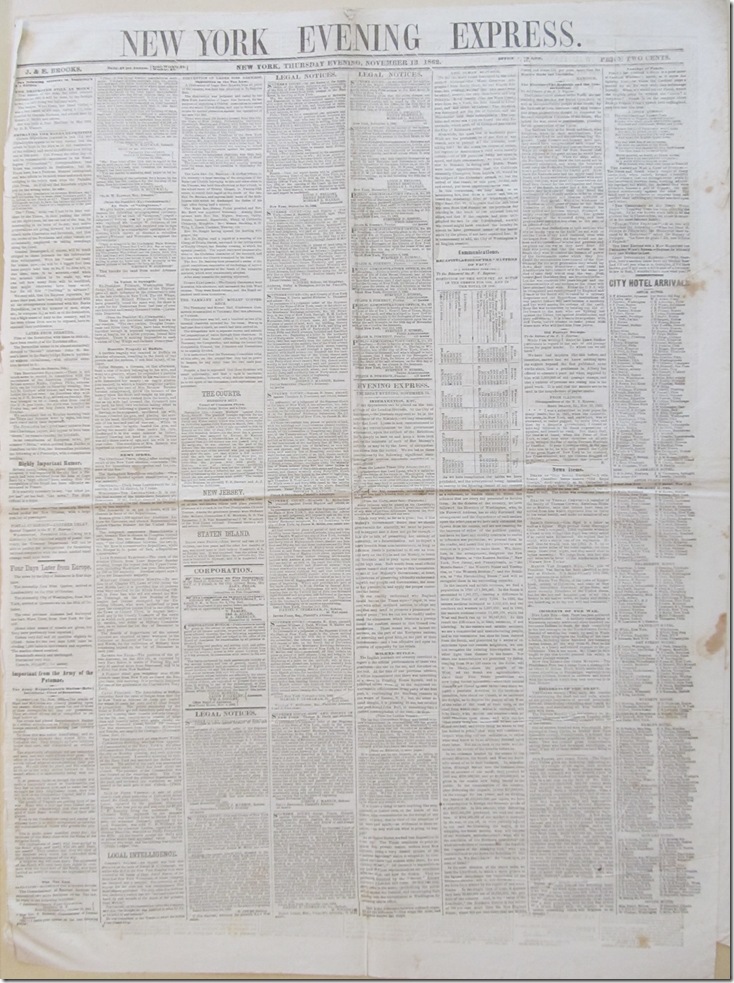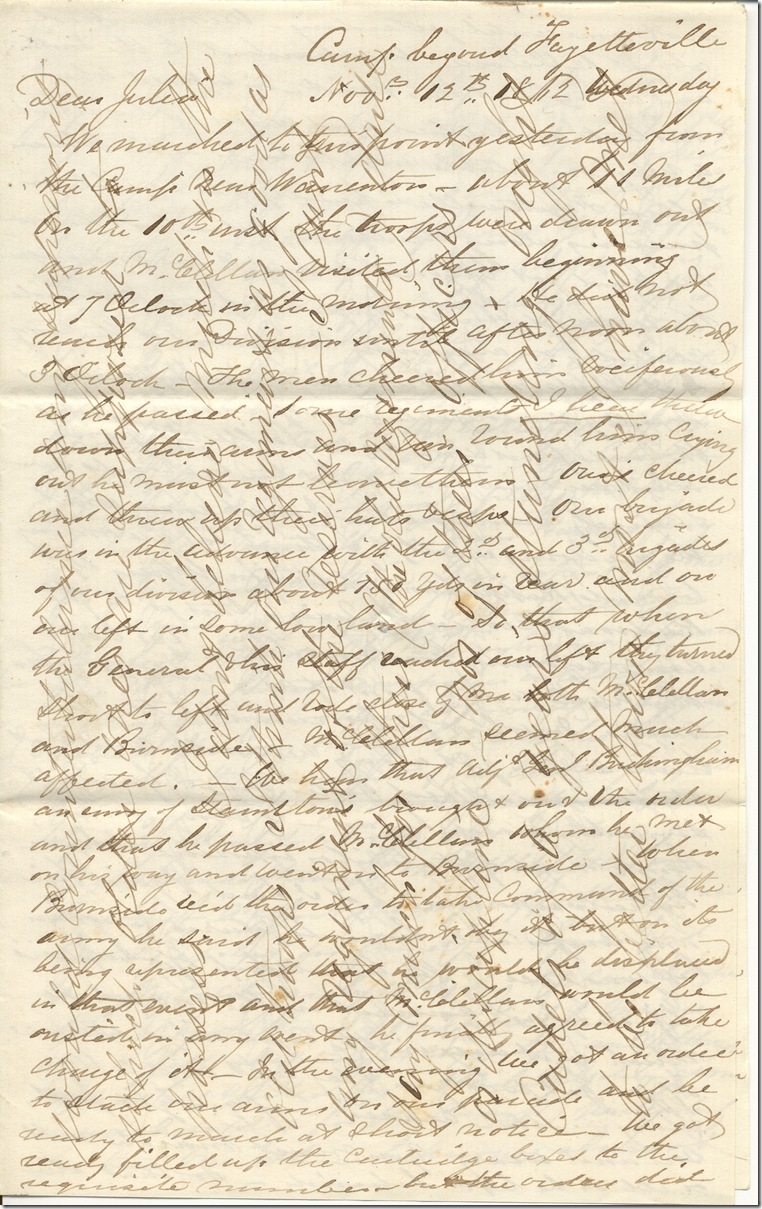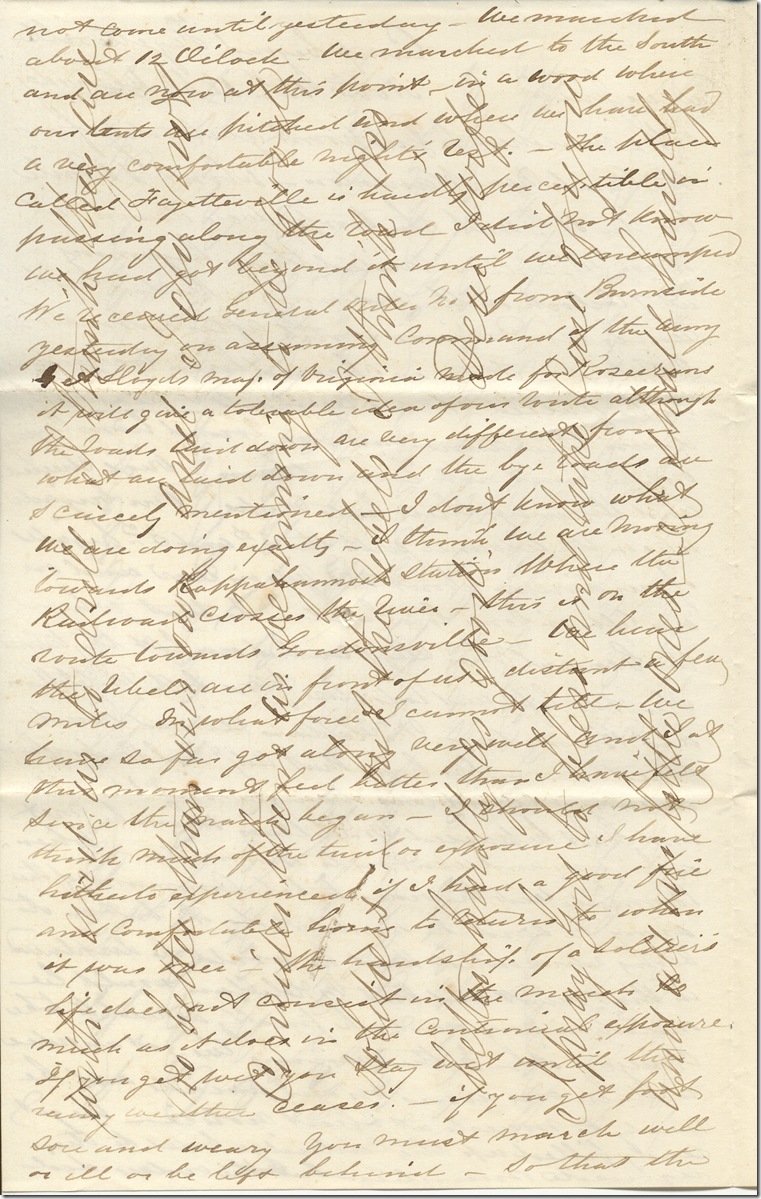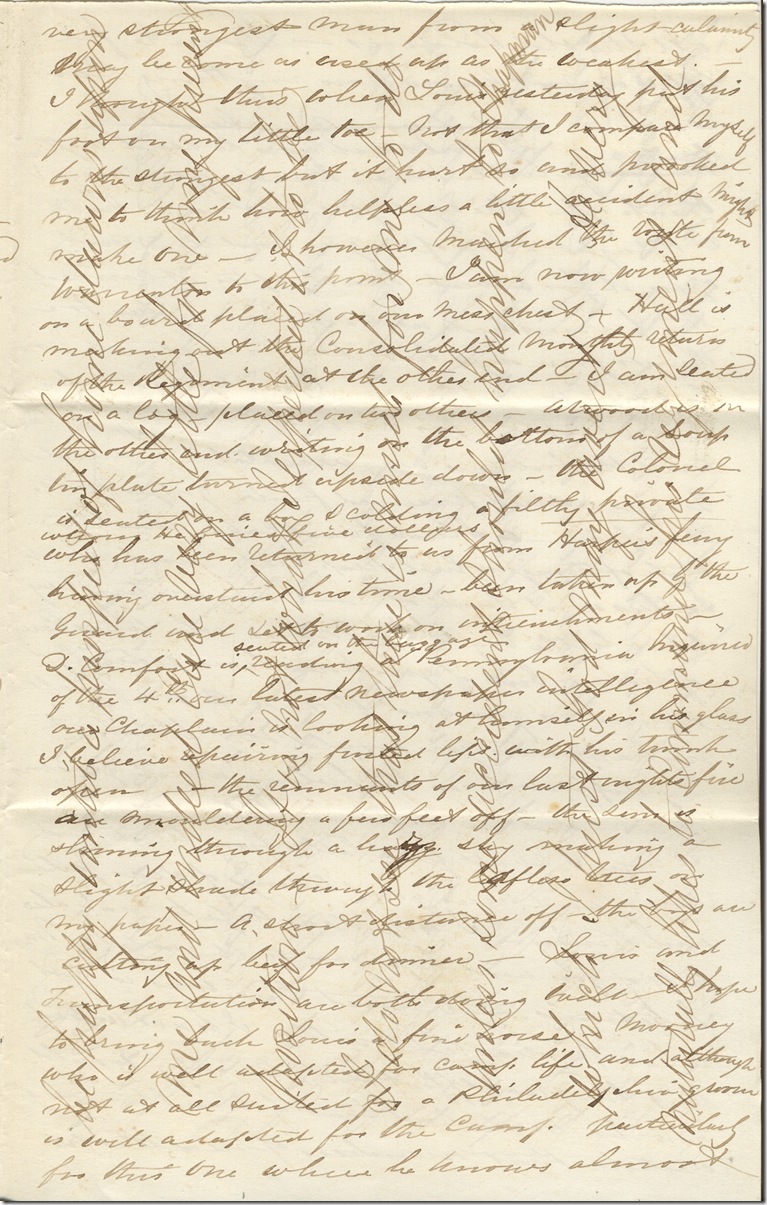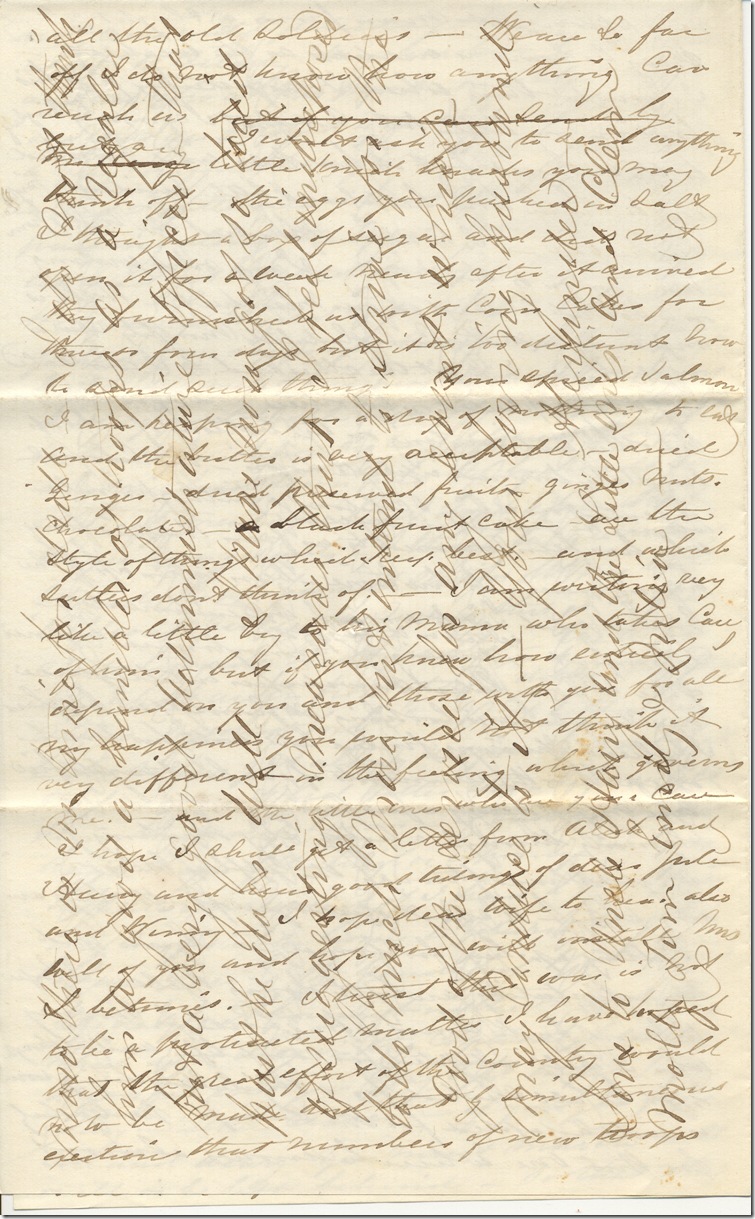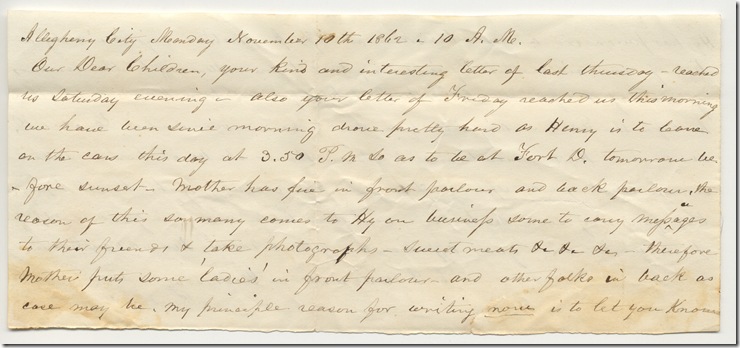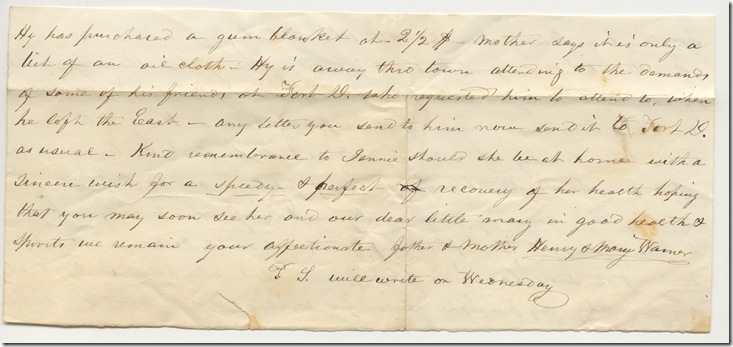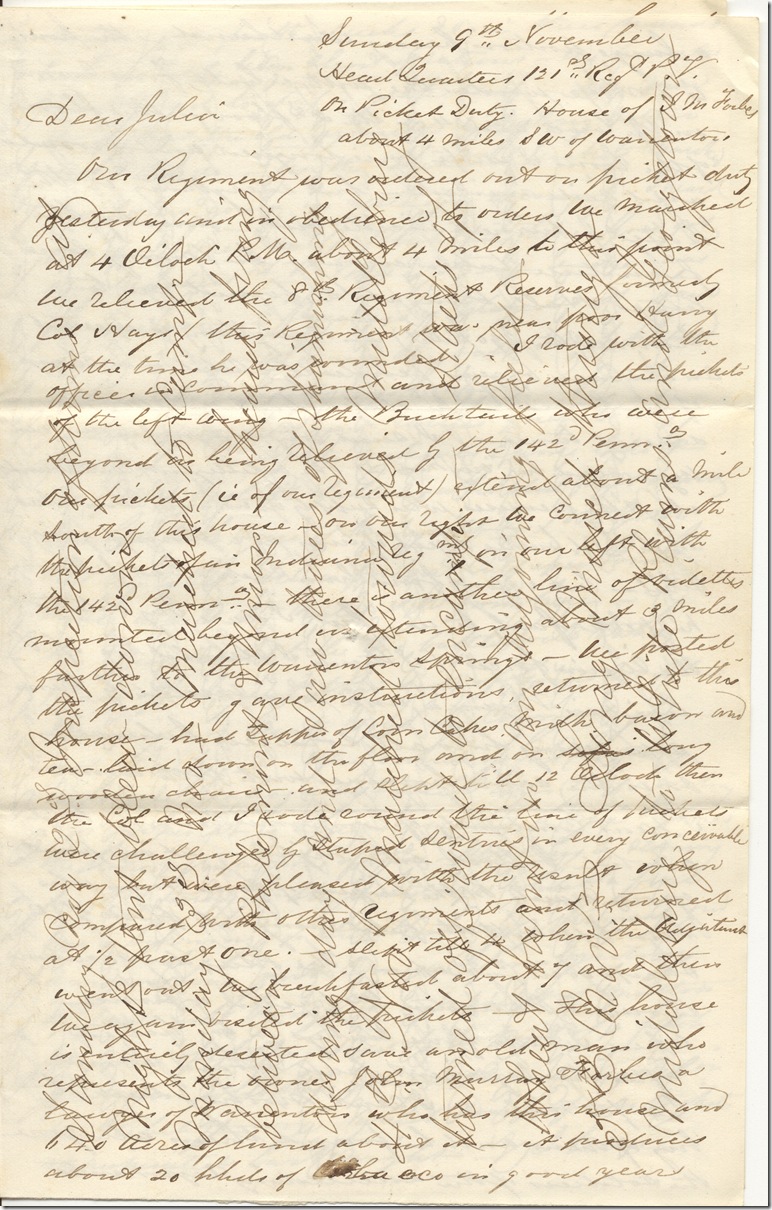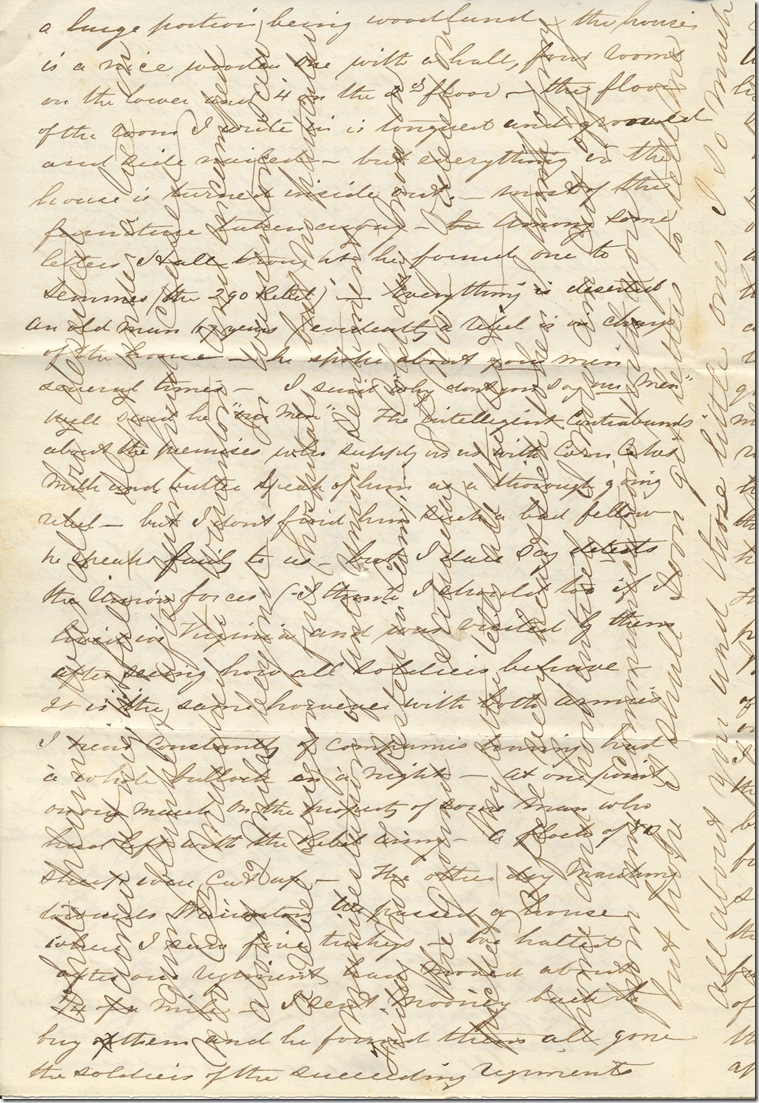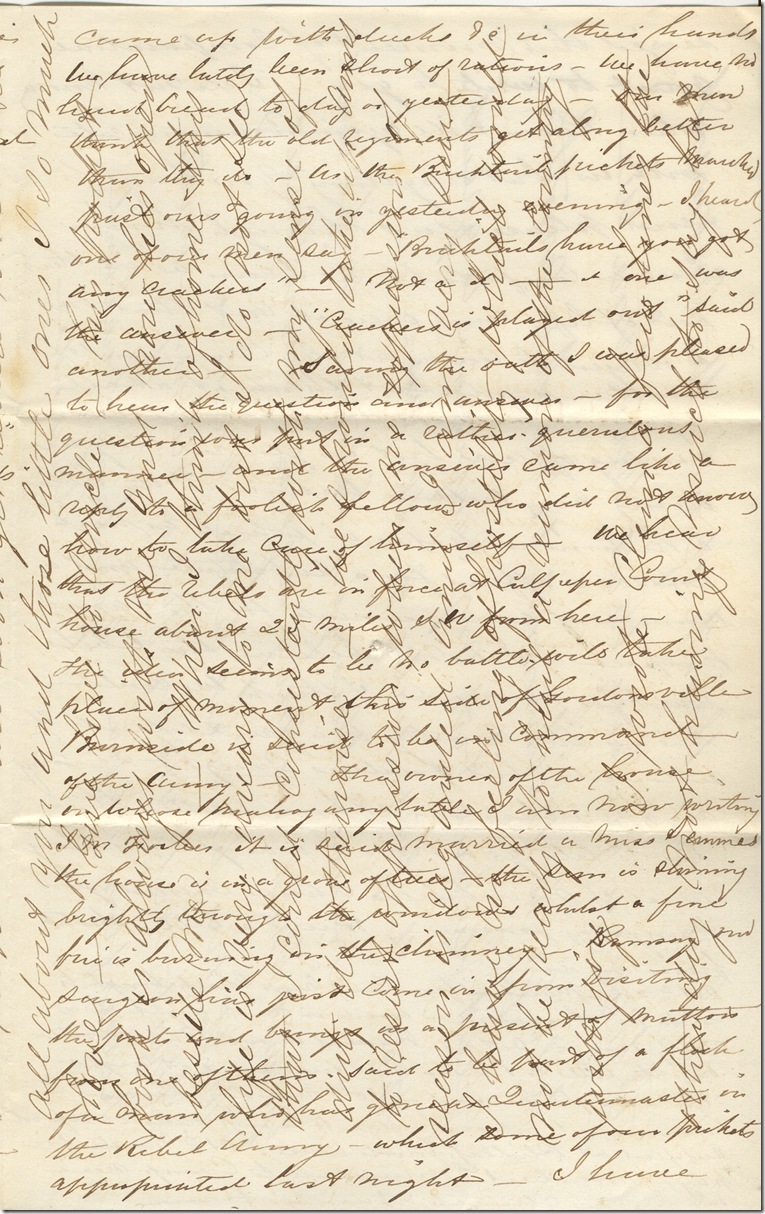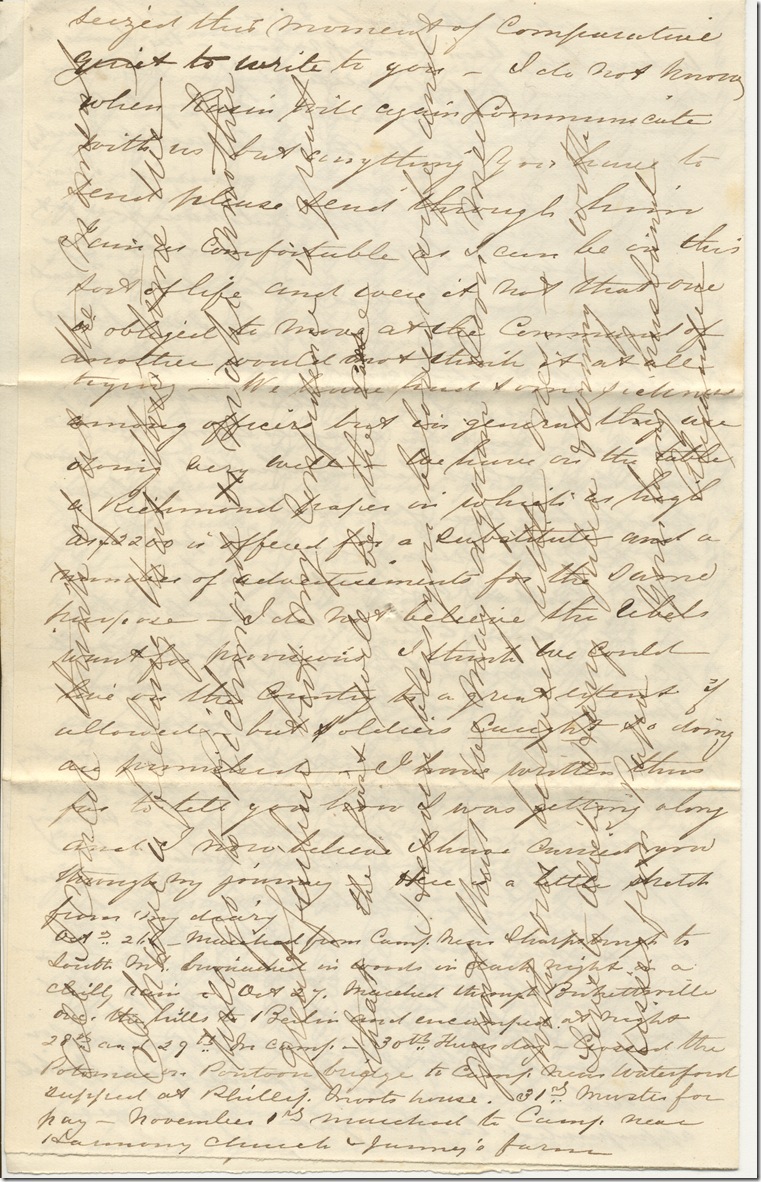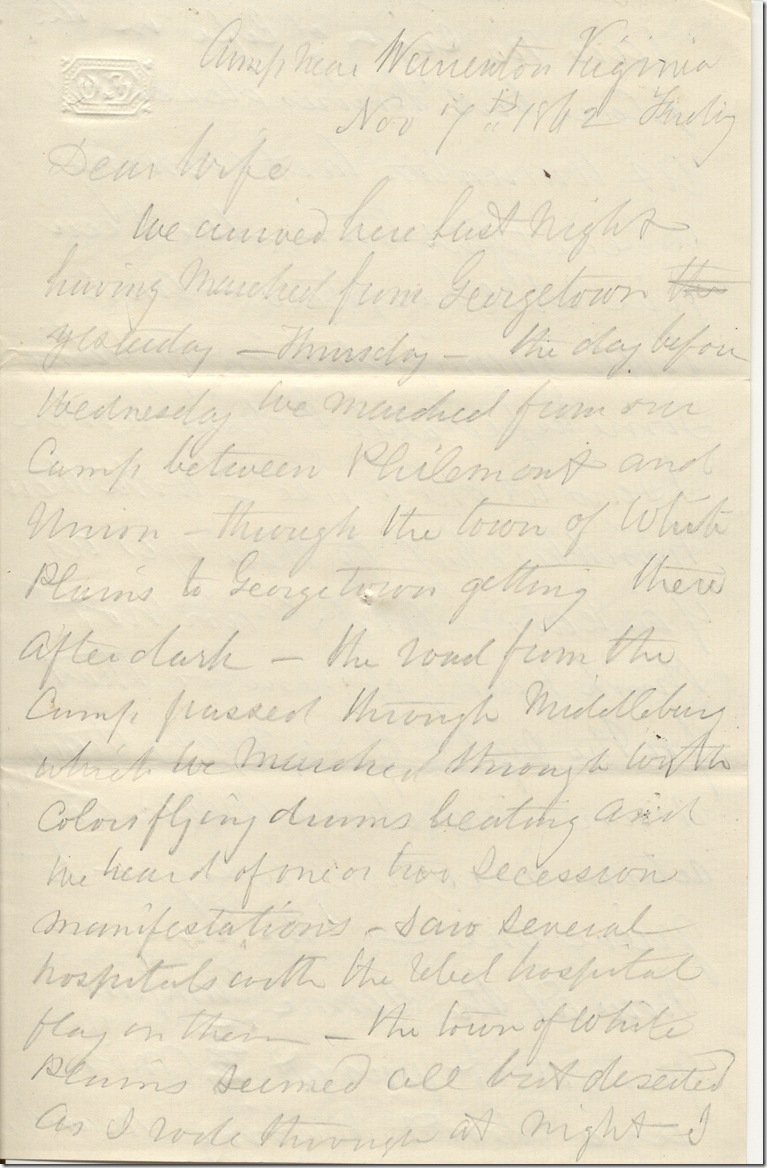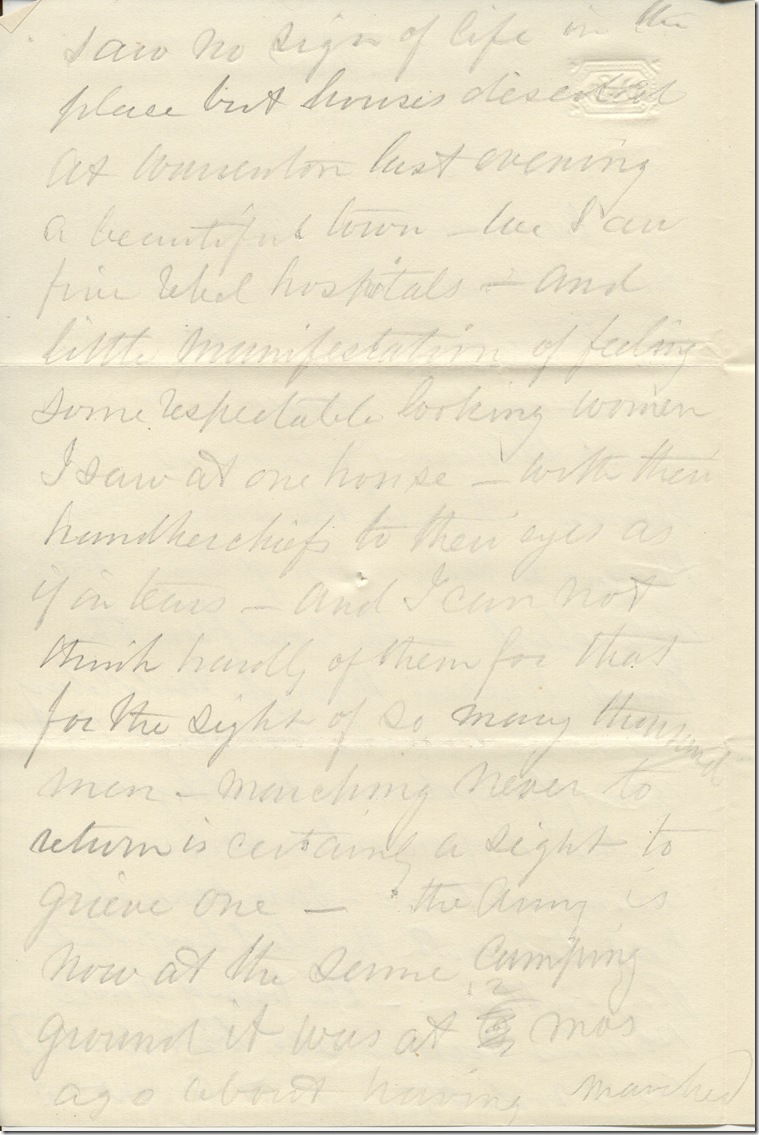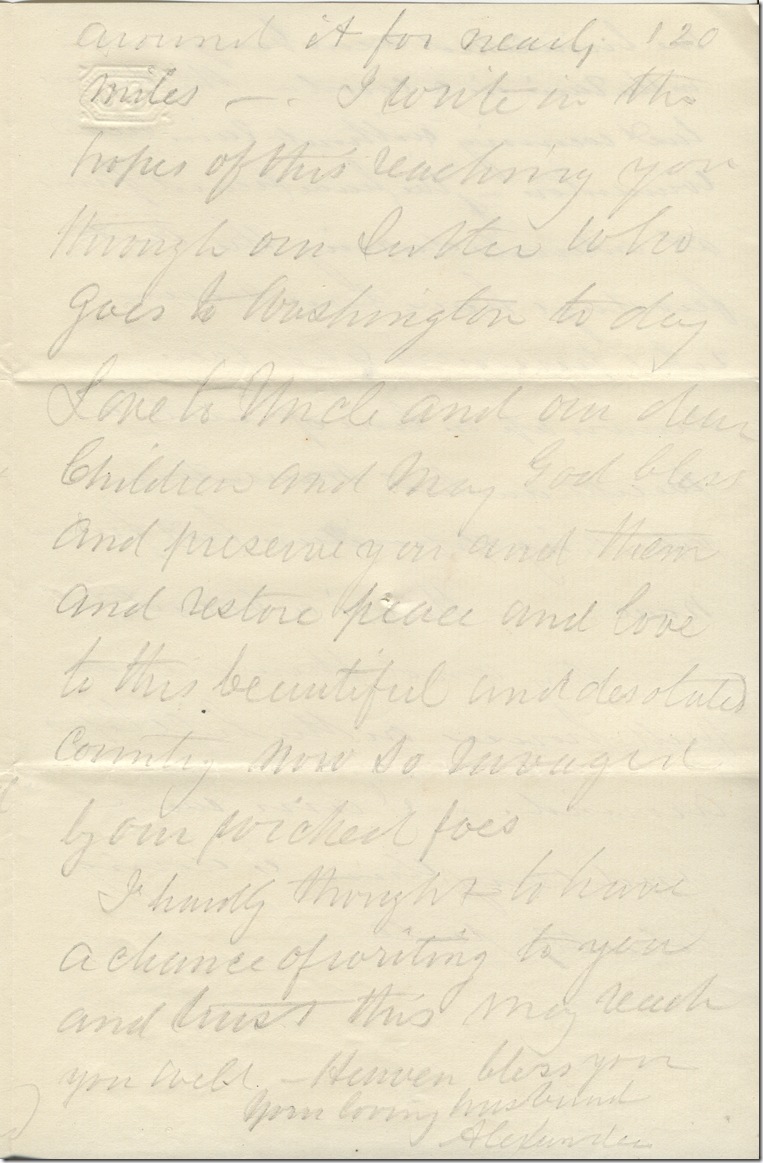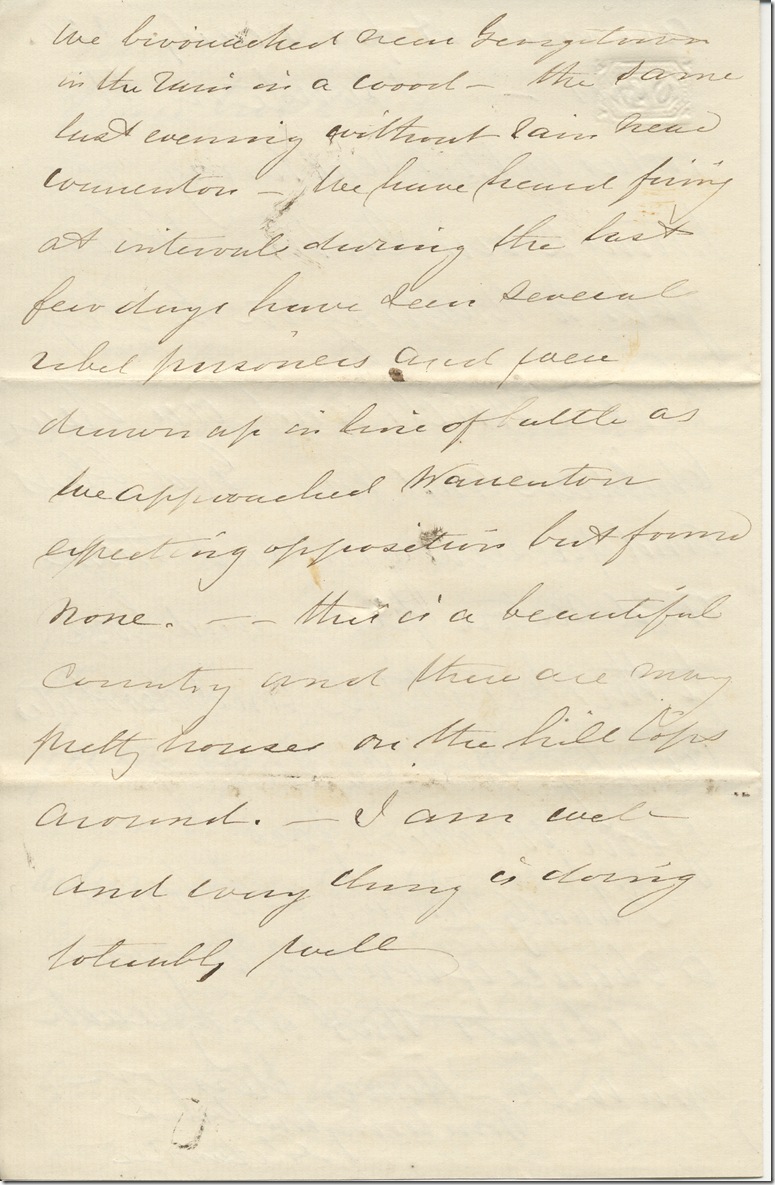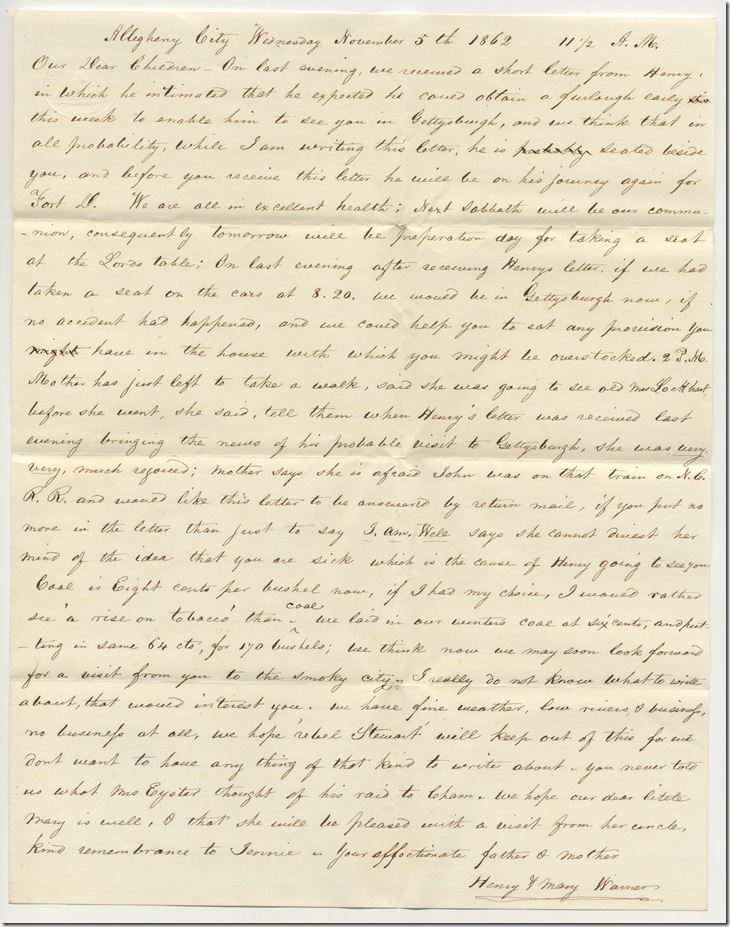Alexander Biddle was a member of the prominent Philadelphia Biddle family and was married to Julia Williams Rush, the granddaughter of Dr. Benjamin Rush. Biddle served with the 121st Pennsylvania Volunteer Infantry, beginning in September 1862. Starting out as a major, he would participate at Fredericksburg and Gettysburg, among other engagements, and would leave the service as a lieutenant colonel. (He was commissioned, but never mustered, as colonel)
Transcript (excerpt):
Wednesday Nov. 19th – I resume my letter where I left off last nights for supper. We pitched our tents for the field & staff in the rain on the banks of a creek we suppose to be the Accukeck Creek about 3 miles W of Stafford CH. A clean stream about the size of [Cushiem?] Creek near the Hill of fine clear water – the best I have seen since we marched into Virginia our Brigade is now reduced to the Rifles (Bucktails) the 1st, 2nd & 6th Reserves and the 121st. Genl. Seymour has left us and Col Sinclair of the 6th in command of Brigade. We now form part of the Left Guard Division of the Army. Composed of the 1st and 6th Army Corps Commanded by Genl. Franklin I think our Army Corps is comprised of Meade’s division Gibbon (formerly Ricketts) and King’s – Each Division is composed of these or four Brigades and each Brigade of four to six regiments of military units Artillery and Cavalry unattached to Brigade. This is as near a sketch of the Army Amalgam as I can give you.
Citation: Alexander Biddle (1819-1899), autograph letter signed to Julia Williams Rush Biddle.18-19 November 1862. Rush:IV:30:25
